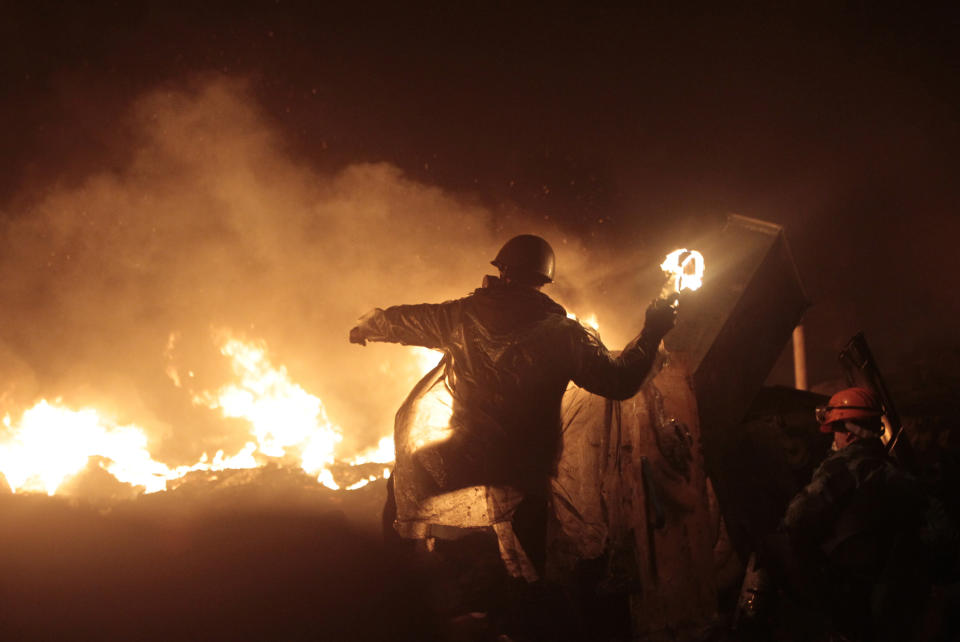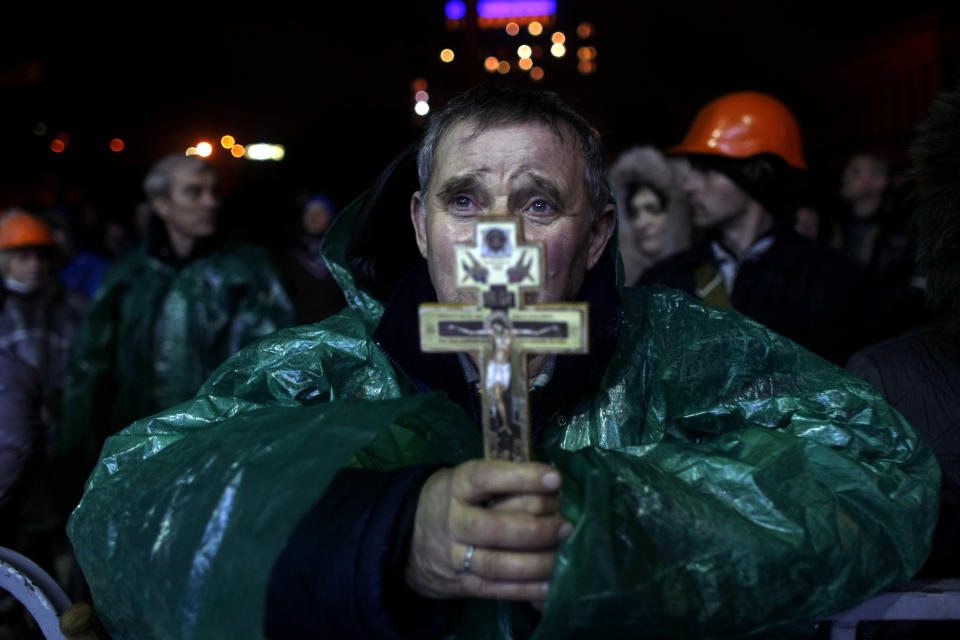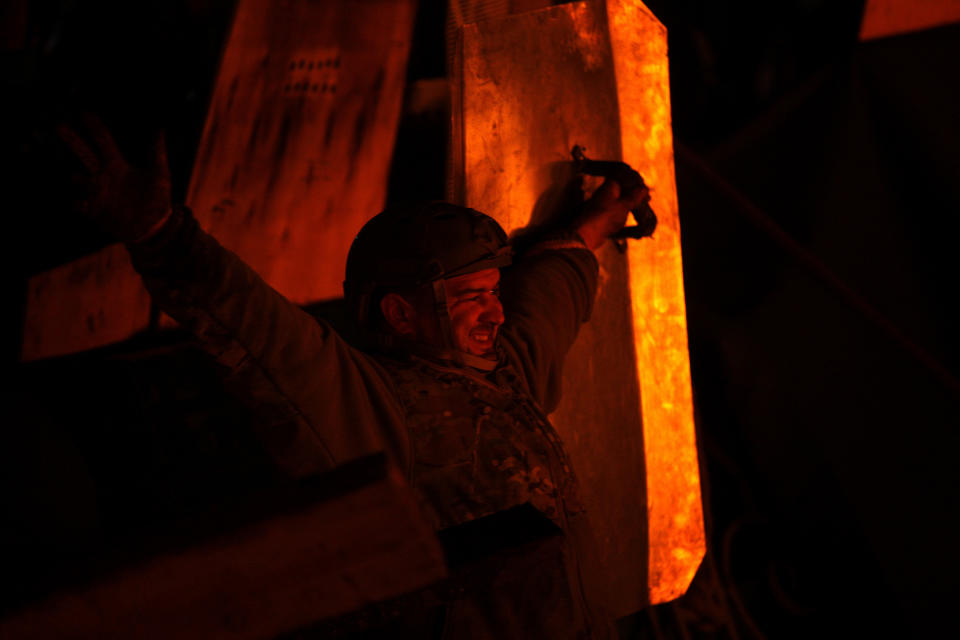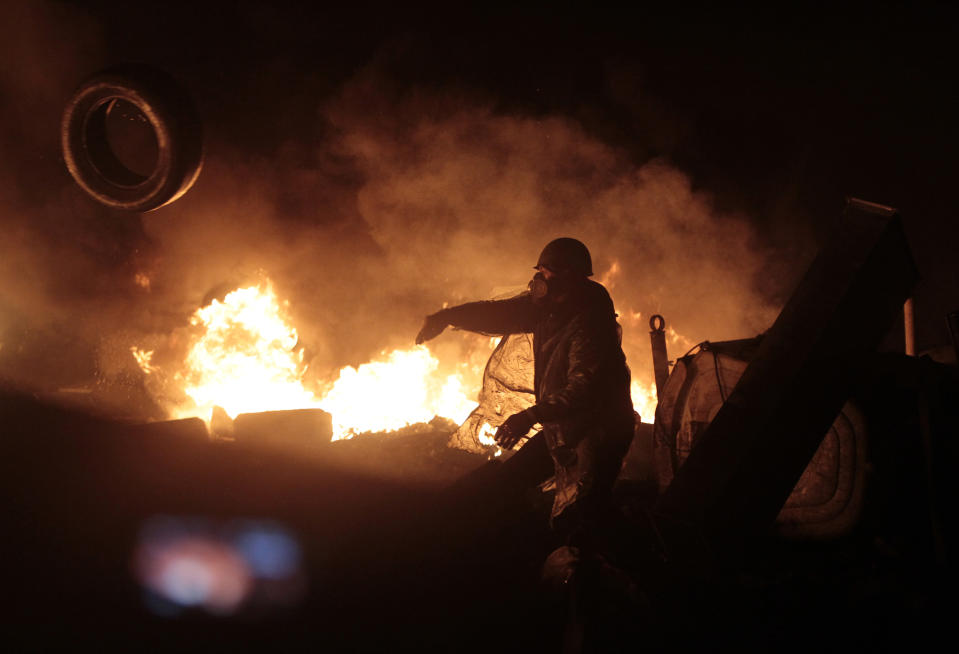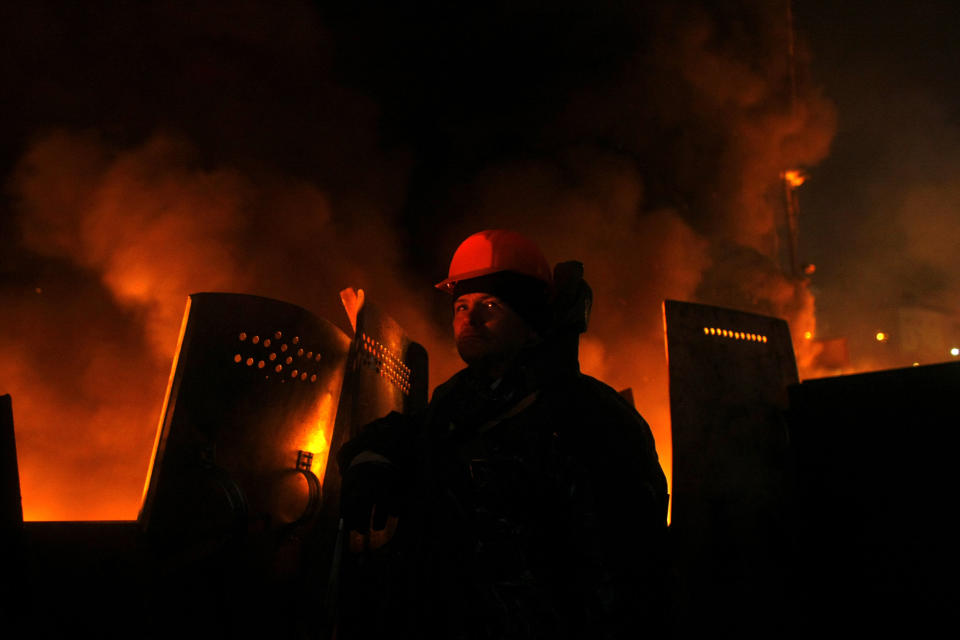Ukraine: At least 11 dead as truce collapses
KIEV, Ukraine (AP) — Fierce clashes between police and protesters in Ukraine's capital have shattered the brief truce Thursday and an Associated Press reporter has seen 10 bodies laid out on the edge of the protest encampment. One policeman was killed and 28 suffered gunshot wounds on Thursday, Interior Ministry spokeman Serhiy Burlakov told The Associated Press.
As the violence exploded and heavy smoke from burning barricades at the encampment belched into the sky, the foreign ministers of three European countries met with President Viktor Yanukovych, after their meeting with the opposition leaders.
The two sides are locked in a battle over the identity of this nation of 46 million, whose loyalties are divided between Russia and the West, and parts of the country are in open revolt against the central government.
The latest bout of street violence began Tuesday when protesters attacked police lines and set fires outside parliament, accusing Yanukovych of ignoring their demands to enact constitutional reforms that would limit the president's power — a key opposition demand. Parliament, dominated by his supporters, was stalling on taking up a constitutional reform to limit presidential powers.
In a statement published early Thursday, the Ukrainian Health Ministry said 28 people have died and 287 have been hospitalized during the two days of street violence. Protesters, who have set up a medical care facility in a downtown cathedral, say the numbers are significantly higher.
A statement from the Interior Ministry on Thursday said the gunfire against officers appeared to be coming from the national music conservatory, which is on the edge of the downtown square housing an extensive protest tent camp.
Also Thursday, the parliament building was evacuated because of fears protesters were preparing to storm it, said parliament spokeswoman Irina Karnelyuk.
The renewed clashes despite the declaration of truce follow days of violence, the most deadly since protests kicked off three months ago after Yanukovych shelved an association agreement with the European Union in favor of closer ties with Russia. After Yanukovych shelved the agreement with the EU, Russia announced a $15 billion bailout for Ukraine, whose economy is in tatters.
The ongoing violence on the square Thursday indicates that more radical elements among the protesters may be unwilling to observe the truce and may not be mollified by the prospects of negotiations. Although the initial weeks of protests were determinedly peaceful, radicals helped drive an outburst of clashes with police in January in which at least three people died, and the day of violence on Tuesday may have radicalized many more.
Political and diplomatic maneuvering has continued, with both Moscow and the West eager to gain influence over this former Soviet republic. Three EU foreign ministers — from Germany, France and Poland — are in Kiev Thursday speaking with both sides before an emergency EU meeting in Brussels to consider sanctions against those responsible for the recent violence in Ukraine.
President Barack Obama also stepped in to condemn the violence, warning Wednesday "there will be consequences" for Ukraine if it continues. The U.S. has raised the prospect of joining with the EU to impose sanctions against Ukraine.
Russia's Foreign Ministry, meanwhile, described the violence as an attempted coup and even used the phrase "brown revolution," an allusion to the Nazi rise to power in Germany in 1933. The ministry said Russia would use "all our influence to restore peace and calm."
Neither side had appeared willing to compromise, with the opposition insisting on Yanukovych's resignation and an early election and the president apparently prepared to fight until the end.
___
Maria Danilova, Jim Heintz and Yury Uvarov in Kiev contributed to this report.
